What We’re Reading 2024
Trey Wood
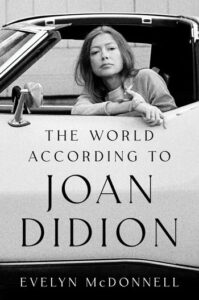
The World According to Joan Didion
by Evelyn McDonnell
The title of Evelyn McDonnell’s new book, The World According to Joan Didion, is a bit misleading because the book certainly is not a sweeping review of the famous writer’s take on all things. It’s also not a biography. It’s more what publishers sometimes refer to as a collection of sketches or a portrait of its subject, covering stories and influences in the writer’s life. For Didion fans, it’ll be a must read. Still, it’s not a valentine to Didion. At different intervals, Ms. McDonnell describes or at least hints at her disgust with Didion’s appetites for high-end clothing, cars and softer living in the last decades of her life. But I don’t judge.
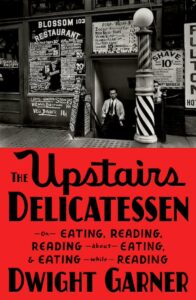
by Dwight Garner
Many readers of The New York Times will notice the author of The Upstairs Delicatessen as the long time book critic at the Gray Lady. The only reason that means anything to me is this book will forever change the way I understand Mr. Garner’s reviews of other writers’ books. In this new memoir, Garner explains the connection – really the binding – of his two favorite passions in his mind, in his life, that are food and books. In short, they are inseparable! And, they are the excuses for countless recollections of favorite stories from and about his favorite authors. It’s a fabulous and relatively short read that I highly recommend.
Michael Garcia
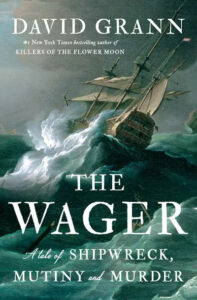
by David Grann
There was one standout book for me this year — The Wager, by David Grann. The subtitle, “A Tale of Shipwreck, Mutiny, and Murder,” will certainly draw you in and keep you pinned down. Grann, perhaps today’s best nonfiction writer, meticulously tells the story of the 18th century British man-of-war, The Wager, its shipwreck off the southern tip of South America, and the subsequent struggle for survival. But more than anything, The Wager is about the truth, or the pursuit of the truth, or how we each define our own truth, or about the lengths to which we’ll go to be the hero of our perceived truth. It’s as relevant today as it was in the 1740s.
Allison Artnak
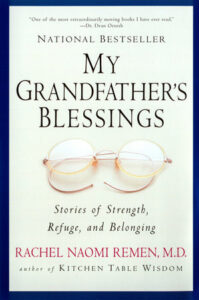
by Rachel Naomi Remen, MD
A book of short stories that uses wisdom to find our blessings and to bless those around us.
Scott Walters
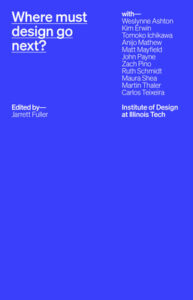
by Jarrett Fuller
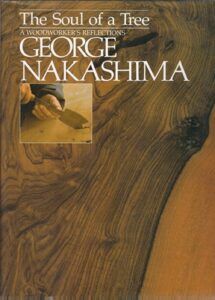
The Soul of a Tree: A Master Woodworker’s Reflections
by George Nakashima
Julia Wolf
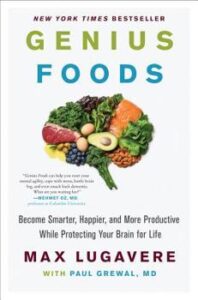
Genius Foods: Become Smarter, Happier, and More Productive
While Protecting Your Brain for Life
by Max Lugavere and Paul Grewal M.D.
I actually downloaded this book quite some time ago (when a WSJ subscription entitled you to free e-books), and thought it was time to read it, given my advancing age and forgetfulness. The book goes into great scientific detail on all the things you can eat (or not) that will impact your body and your brain function. (Spoiler alert! Dark chocolate is on the list!) Lugavere began his study after his mother was diagnosed with dementia at a young age. Based on that tragic occurrence he delves into the world of health science. Although there is a major premise that I find questionable (Many centuries ago, life was more supportive of good health through more rigorous work, fewer processed foods in our diet, and fewer chemicals in our environment. While that’s probably true, do we know for sure when people were likely dead by age 40?), it’s still a very interesting read.
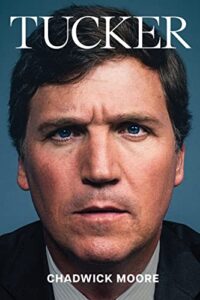
by Chadwick Moore
A biography of Tucker Carlson. I was curious after his abrupt departure from Fox News received so much publicity. I really knew nothing about the man, and I found his story to be more interesting than I thought it would be.
Norine Cannon
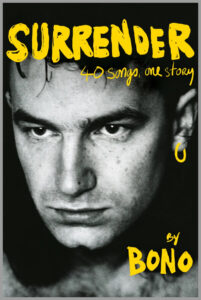
By Bono
I was drawn to this book as I’m a bona fide U2 fan. The book is Bono’s life story organized around 40 U2 songs. While unlocking the meaning of the band’s most popular and influential songs, it also provides insight or at least Bono’s view on how U2 has stayed together, despite decades of personal struggle and creative disagreements. And I’ve always admired how he and the other band members have used their fame for worthwhile causes. Over the years, Bono especially has been willing to work with politicians and other unpopular types to achieve the larger goal—sometimes to the chagrin of his bandmates—from canceling the debt of poor countries, fighting for funding for the arts, to persuading governments to respond to the global AIDS crisis. I found the backstory of these efforts really interesting.
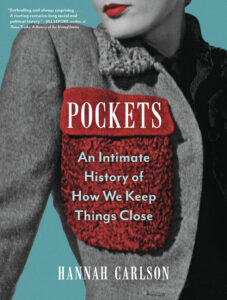
Pockets: An Intimate History of How We Keep Things Close
by Hannah Carlson
My daughters will confirm that I often complain about the lack of pockets in women’s clothing. When I stumbled across this book, I knew I wasn’t the only one, but I had no idea it was actually tied to much more. The author, a lecturer in dress history at the Rhode Island School of Design, reveals how pockets hold so much history and are connected to gender politics, security, sexuality, power and privilege. The book also addresses what pockets can tell us about people—such as when you put your hands in your pockets, it can be interpreted as all sorts of things, including laziness, arrogance and confidence—and whether in the future, we will still even want them, as smart clothing will incorporate IDs and credit cards. (For me, however, I think I’ll still want a place to put a tissue.)
Karen Sherman
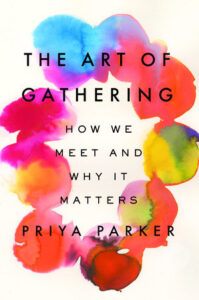
The Art of Gathering: How We Meet and Why It Matters
by Priya Parker
Discovered the unexpected gem The Art of Gathering in 2023, and it has completely redefined my approach to both professional and personal interactions. This book goes beyond the typical business advice, offering insightful strategies that have transformed my family gatherings over the holidays into deeply meaningful and memorable occasions. It’s an essential read for anyone eager to elevate their gatherings from mundane to unforgettable. Don’t miss out on this life-changing read–especially if you are searching for ways to make authentic connections any time you gather.
Amy Crowell
I’m currently reading the mystery Just Another Missing Person by Gillian McAllister. My teenager chose it for me as a Christmas gift so it’s a must-read! Just finished Other Birds by Sarah Addison Allen, set on an island off South Carolina’s coast which is a favorite place of mine. Leave the World Behind is on my nightstand, and Queens of London is pre-ordered. I’m going to speedread it to attend a talk given by the author Heather Webb the day after it arrives. Book talks were a pre-pandemic habit of mine, and I’m resolved in the New Year to revive it.
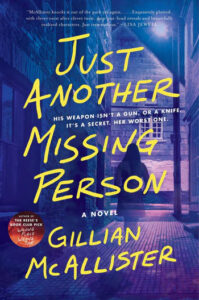
by Gillian McAllister
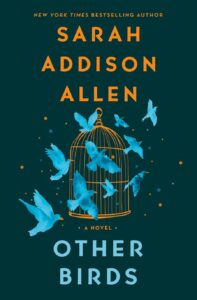
by Sarah Addsion Allen
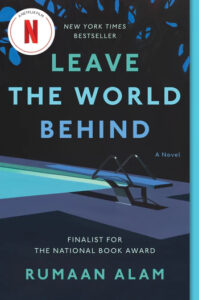
by Rumaan Alam
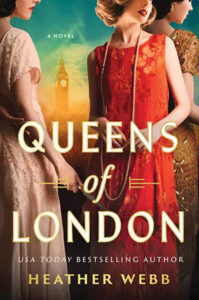
by Heather Webb
Glen Gonzalez
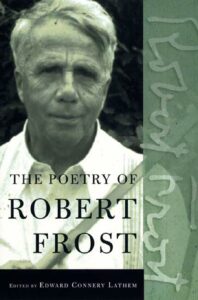
Edited by Edward Connery Lathem
From the often misunderstood The Road Not Taken to the ironically quoted Mending Wall (“Good fences make good neighbors.”), I find Frost’s poetry inextricable from the American experience. Rooted in traditional verse and form, his work still manages to roll off the tongue while his themes and message are deceptively complex and thought-provoking.
Books on the Era of Reconstruction in post-Civil War America and on Cuba leading up to the communist revolution are on my list as research I’m doing for creative projects I’m working on.
Gretchen Vaught
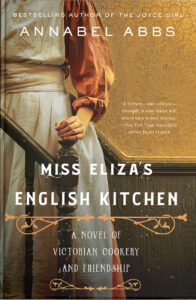
by Annabel Abbs
Think “Julie and Julia” but set in the mid-1800s. The protagonist was Julia Childs’ true inspiration, and the story marries many things that I enjoy—beautiful prose, recipes, and British life and humor. I don’t usually read fiction, but historical fiction based on a true story is a winner.
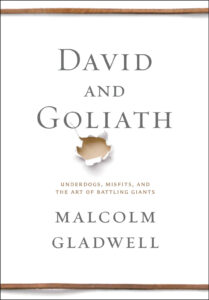
by Malcolm Gladwell
Gladwell never fails to inspire me, usually leaving me wondering why I didn’t pursue the path of sociology that beckoned me in college … this particular work explains how human nature assumes certain outcomes when the odds appear to be tipped in the favor of one or against the odds of another, when in fact, the things most people assume to be a sure strength or a guaranteed weakness actually belie an opposite truth.
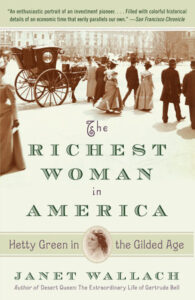
by Janet Wallach
The Gilded Age is captivating in itself, but the characters who rose to prominence because of the unique economic conditions of the day are worth studying—even more so the women who outmaneuvered men in their own game and rose to great heights are an enduring inspiration to everyone.
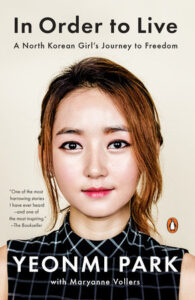
by Yeonmi Park
While I was “suffering” the broke college student life, Yeonmi Park was growing up in a country where daily survival was a true achievement. In the 1990s, she escaped North Korea and lived to warn her contemporaries that the ideology that keeps her countrymen imprisoned in their own land is rabid to grow beyond its existing confines. Each day that its poison is unchecked by those who have the power to defeat it, its demonic power grows stronger.
Don Sanford
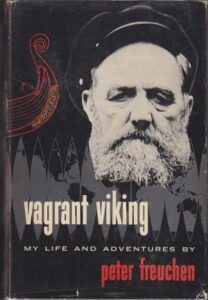
by Peter Freuchen
This is a book I actually read as a very young man, and wanted to come back to in my later years to see if it had the same magical impact I felt upon first reading. I wasn’t disappointed. Peter is a writer by trade (love those guys) and explorer by choice (envy those guys). During the early 1900s he traversed much of Greenland, roaming up and down the coast on dog sleds and living a simple life with Eskimos. His book is a compilation of those travels, told with a certain journalistic bluntness but with enough color to pull you into the emotions of his experiences. Some of the travels were quite harsh with the loss of life, and for Peter on one occasion, a case of frostbite so severe that he lost a leg. If you are looking for a real life explorer story and adventure … this should be on the top of your list. I’m glad I gave it a second spin.
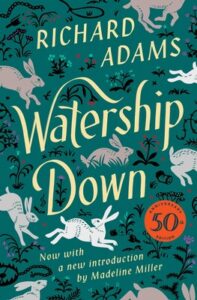
by Richard Adams
Each year I try my best to read a classic that years ago I skipped over or just didn’t have the inclination to plow through. Dickens, Hemingway, Tolstoy, Austen … you know, the Gods of literature. To be honest, some of the work is laborious — a chore to navigate. Midway through a classic I often wonder, why am I doing this? Just to get an occasional question right on Jeopardy? And then I read something like Watership Down, and I remember why. It’s imaginative, fun, captivating and insightful. If you are not familiar with the work, it follows the lives of a group of rabbits who have left one warren to start their own community. And while the tale of a group of animals, sounds, well … animalistic, it couldn’t be any more human. The characters are full, vivid and admirable. They exhibit an honesty and incredible sense of leadership as they find their way battling foxes, men, and other rabbit communities. For some reason it makes me think of how our country’s Founding Fathers might have acted and felt. There are many instances of individual bravery, but what emerges is a sense of togetherness that is quite remarkable. It is one of the more entertaining and enlightening classics I have read, and has inched its way onto my all-time favorites’ list. A great tale of tails.
